Angola
Angolans have directly voted for president only once – in 1992 when multi-party politics was introduced. In 1992, separate ballots were cast for legislators and for president.
Voters have since elected the president indirectly based on parliamentary majority. Parliamentary elections in 2008 was won by the ruling MPLA whose leader at the time Jose Eduardo dos Santos was automatically named president.
In 2010, a new constitution was introduced. Under the terms of the new constitution, the leader of the party with the most seats in parliament automatically becomes president of the country.
Angola votes: Here are the six men hoping to succeed dos Santos
Angola votes: Background to 4th polls since multi-party rule in 1992
The MPLA currently has majority of seats over the last two elections and have therefore had its leader Jose Eduardo dos Santos as president – if they maintain their majority, a new candidate will take the seat for the first time. Defense Minister Joao Lourenco is the new leader of the MPLA;
The over 9 million voters will have six men to pick from when they enter the voting booth. Where there is an unlikely event of a tie for the top two parties, the smaller parties could prove crucial depending on which party they chose to align with.
All persons 18 years and above and duly registered will have the right to cast their ballots. With the exception of the APN party which was founded a year and a half ago, all five other parties on the ballot sheet have representation in parliament.
Africa’s longest serving presidents still going strong
The breakdown of their respective seats is as follows:
- MPLA (175 seats) led by Joao Manuel Goncalves Lourenco
- UNITA (32 seats) led by Isias Henrique Ngola Samakuva
- CASA-CE (8 seats) led by Abel Epalanga Chivukuvuku
- PRS (3 seats) led by Benedito Daniel
- FNLA (2 seats) led by Lucas Benghim Gonda
- APN (0 seats) led by Quintino Antonio Moreira
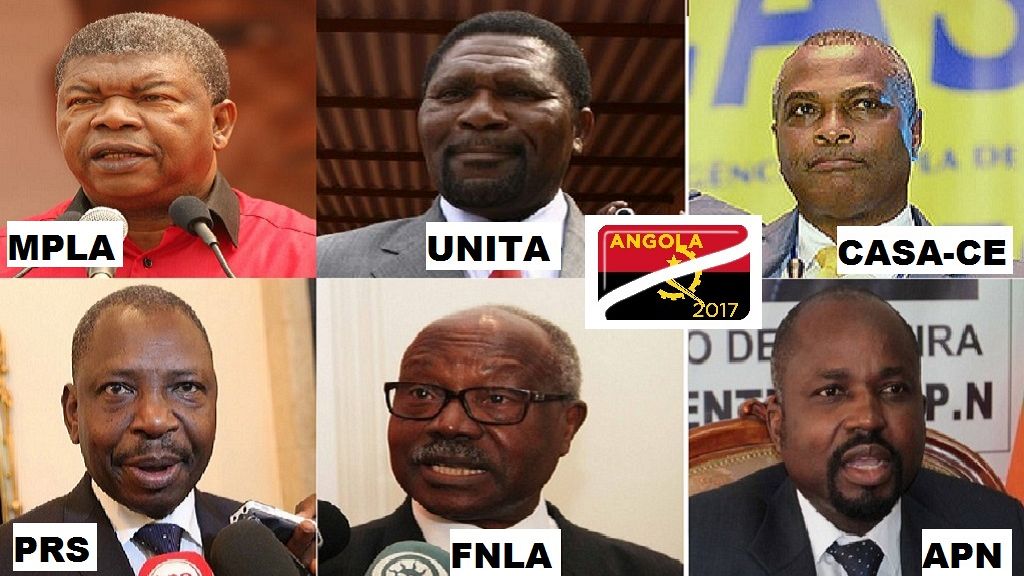
One of the six candidates will become Angola’s first political leader after dos Santos – the 74-year-old came to power in 1979. He is Africa’s second longest serving leader only behind Equatorial Guinea’s Teodoro Obiang Nguema.
Dos Santos’ party has anointed current Defense minister Joao Laurenco, who will face main opposition leader UNITA’s Isias Henrique Ngola Samakuva and four other candidates.



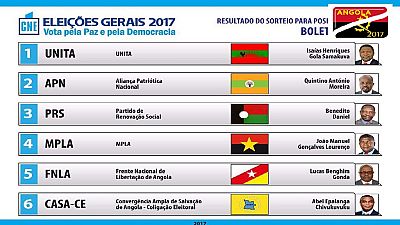

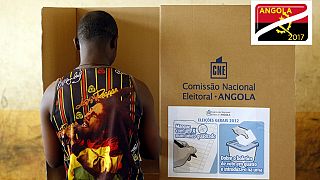
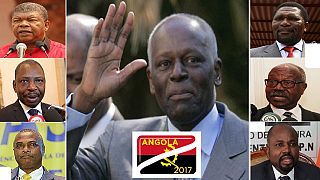
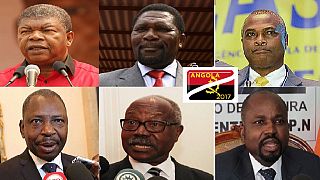
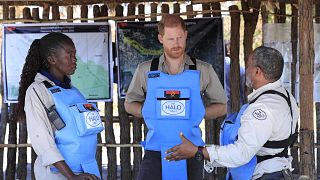
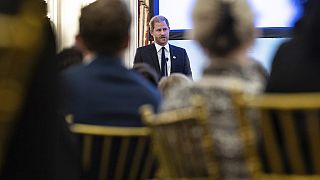
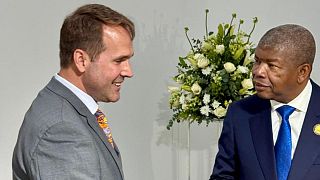



01:21
Cameroon 2025: Maurice Kamto seeks to vie on a different political outlook
01:52
Togo’s security forces cast early votes ahead of high-stakes municipal elections
11:16
Angola hosts U.S.-Africa summit amid calls to revive trade ties {Business Africa}
Go to video
Togo suspends French state-owned broadcasters RFI and France 24
Go to video
Protesters gather in Ivory Coast, demand Thiam's return on electoral list
02:13
Cameroon: Police, opposition supporters clash as election looms